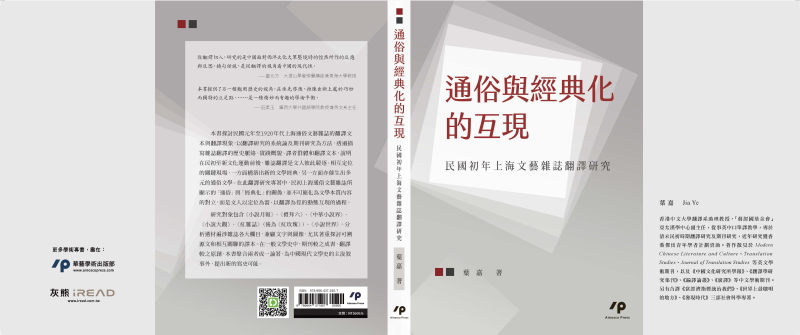News and Events
Popular Press in/and Canonization: A Study of Translation in Early Republican Shanghai Literary Magazines
| The monograph builds on the concept of canonicity in polysystem theory to offer a cultural-historical analysis of the translational practice in a selection of Chinese-language popular (tongsu) literary magazines published in early Republican Shanghai. Through a recovery of the translation norms, sources and textual strategies, the analysis corrects the historical assumption of the magazines as traditionalist publications, and confirms their forward thinking in using translation to adapt writing traditions to cosmopolitan sentiments and tastes. The magazines were contrasted by the leading May Fourth journals published at the same time, which used translation to instate modernist literary canon and to dismiss the magazines as typical of the backward-minded populace. As the analysis unfolds, the May Fourth elitist criticism was not disregarded, but fuelled the magazines’ irony of the elite’s self-canonizing rhetoric, and motivated the magazines to seek more translatable materials to diversify their content and move beyond the morphing literary field. The recovery of the instrumental role of translation in this dynamic landscape leads to the central argument that translation in modern periodicals functioned as mechanism for mutual positioning between the competing literary communities. The “popular” (tongsu) in this time and space, in other words, had no ontological status, but was a consequence of a process of canonization through translation. |
| Discover more about the background of the book in the introduction written by Professor Tung Yuan-Fang (Tunghai University) reprinted on China Times: |
| https://www.chinatimes.com/newspapers/20210726000623-260115?chdtv |
| https://www.chinatimes.com/newspapers/20210727000592-260115?chdtv |
 |


